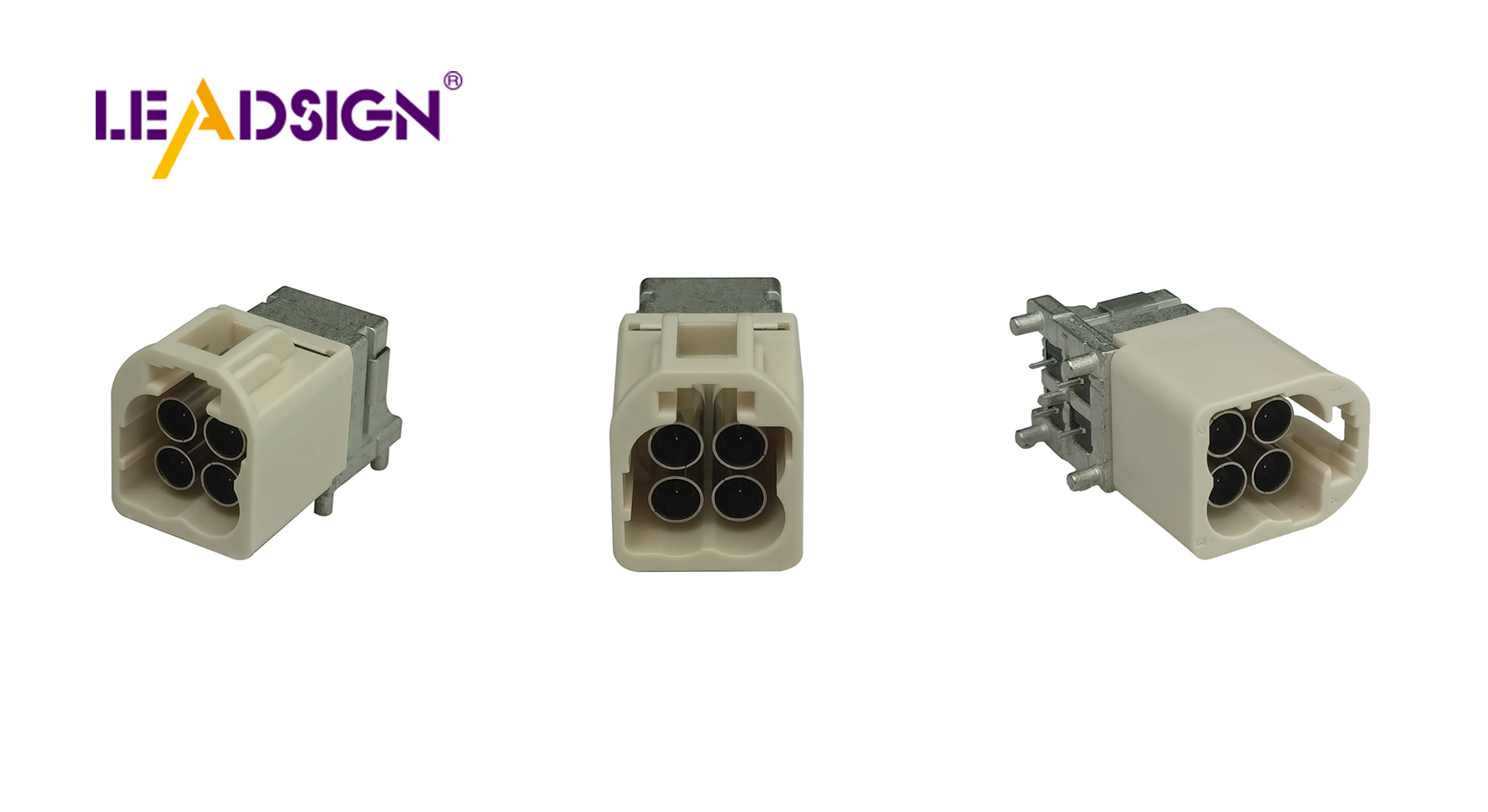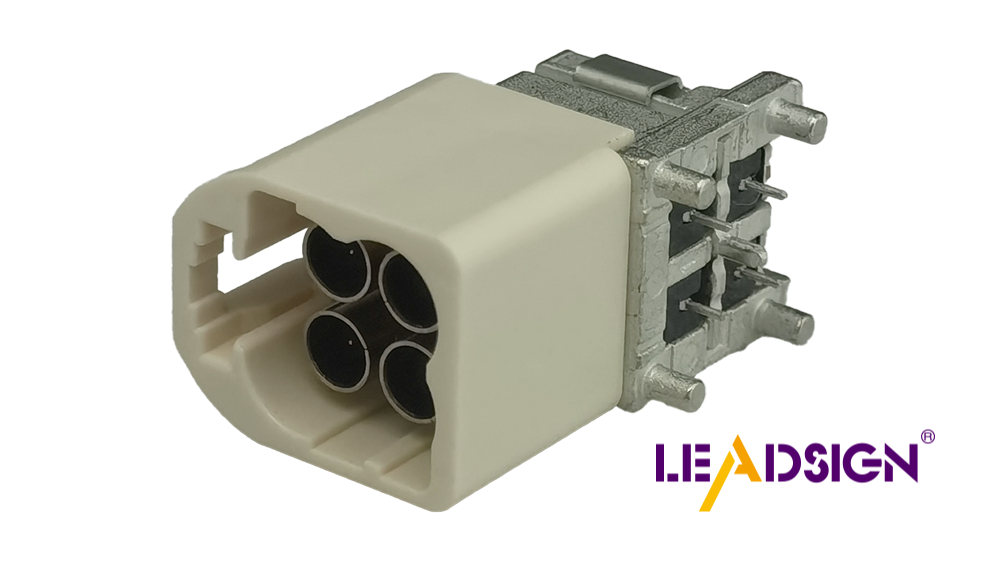How to Choose the Right Automotive Electrical Connectors Types

Selecting the appropriate automotive electrical connectors types is crucial. These connectors play a vital role in maintaining secure and reliable connections between wires and components in vehicles. With the increasing technological advancements in cars, including entertainment and driver assistance systems, the demand for robust connectors has grown. Opt for connectors designed to withstand challenging conditions. Utilizing OEM wiring connectors is advisable for ensuring durable and consistent electrical connections. Understanding the various types of automotive electrical connectors enables you to make informed decisions for different applications, ensuring the safe and efficient operation of your vehicle.
Understanding Automotive Electrical Connectors Types

Definition and Purpose
What are automotive electrical connectors?
Automotive electrical connectors are key parts in a car's system. They link wires and parts, helping them work together smoothly. These connectors help connect wires for things like screens, voice commands, and traffic updates. Knowing about these connectors helps you see how they keep your car running well.
Why are they crucial in vehicles?
You need automotive electrical connectors for safe connections. They are important for engine control, music systems, and lights. Picking the right ones stops errors and keeps your car working well. As tech like driver aids and infotainment grows, strong connectors are needed more. They help send power and data smoothly, making them vital in today's cars.
Common Automotive Electrical Connectors Types
Blade connectors
Blade connectors are very common types you'll find often. They have a flat piece that fits into a slot. These are simple to use and hold tight, great for many uses in your car.
Ring connectors
Ring connectors have a round end that goes over bolts or screws. You use them when you need a strong connection that stays put. They're used with batteries and grounding to work well even in tough spots.
Butt connectors
Butt connectors join two wires end-to-end easily. Use them to make wires longer or fix them. They're easy to set up and keep circuits connected in your car.
Pin connectors
Pin connectors have pins that fit into sockets. They're used in many ways like linking sensors or other parts. Pin connectors give steady links so your car's systems run well.
Material Choices for Connectors
When picking automotive electrical connectors types, think about the materials. The material affects how well they work and last, which is important for keeping your car's connections strong.
Conductivity and Strength
Why material matters for conductivity
The stuff used in automotive electrical connectors types affects how they carry electricity. Scientific Research Findings: They often use copper, brass, or bronze because these are good at carrying electricity and don't rust easily. These materials help signals move well, saving energy and making your car's systems work better. Choosing high-conductivity materials means your car's parts will work their best.
Things to know about durability
Durability is also key when choosing automotive electrical connectors types. Materials need to handle tough conditions like temperature changes, wetness, and pressure. Scientific Research Findings: Designers look for materials that stand up to shocks, shakes, and rust. Picking strong materials helps connectors last longer and keeps your car's systems reliable.
Common Connector Materials
Copper
Copper is a top pick for automotive electrical connectors types because it carries electricity well and bends easily. It helps signals travel fast in many parts of your car. Copper doesn't rust much, so it lasts a long time.
Aluminum
Aluminum is a lighter choice for automotive electrical connectors types. It doesn't carry electricity as well as copper but balances weight with conductivity nicely. It's good where weight matters a lot, like in electric cars.
Brass
Brass mixes copper's strength with zinc's toughness, making it strong for automotive electrical connectors types. Scientific Research Findings: Brass handles power well and stays strong in rough spots. It fights off rust and wear so your car’s connections stay safe over time.
By knowing about connector materials, you can choose wisely to boost your vehicle’s performance and reliability.
Picking the Best Connector for Your Car
To pick the right connector, know what your car needs. Every use has different needs, and choosing the right connector helps it work well.
Needs for Different Uses
Weather conditions
Think about the weather when picking connectors. They need to handle heat, cold, wetness, and dust. Some round connectors are good in tough places. Check where your car goes to pick connectors that last.
Power needs
Power needs matter when picking connectors too. Different parts need different power levels. For strong power uses like lights and engines, pin connectors work best. They are strong and reliable. Knowing what your car's parts need helps you choose good connectors.
New Ideas in Connectors
Newest changes in connector tech
Car tech keeps changing with new ideas all the time. Good connectors help things connect and send data smoothly. European car makers spend a lot to make better connectors for new car systems. These new ideas keep connections fast and steady, which is key for today's fancy cars.
Future of car connectors
In the future, self-driving cars will change connector tech a lot. We need fast data-moving connectors more than ever now. Fiber optic ones are great at moving data quickly and well. As people want more cool features, we need better connectors too. Knowing these trends helps you pick the best ones for your car.
By knowing these things, you can choose the best automotive electrical connectors types for what you need so your car runs safely and well.
Picking the right car connectors is very important. You learned about different connector types and materials. Knowing what works well helps your car run better. It also means less time fixing things. Keep up with new ideas to choose the best connectors. This will make your car work better and make you happier with it. Keep learning to make smart choices for your car needs.
See Also
Significance of FAKRA Connectors in Auto Industry Usage
Vital Role of Fakra Auto Connectors in Contemporary Cars
Essentiality of HSD Connectors in Auto Sector

